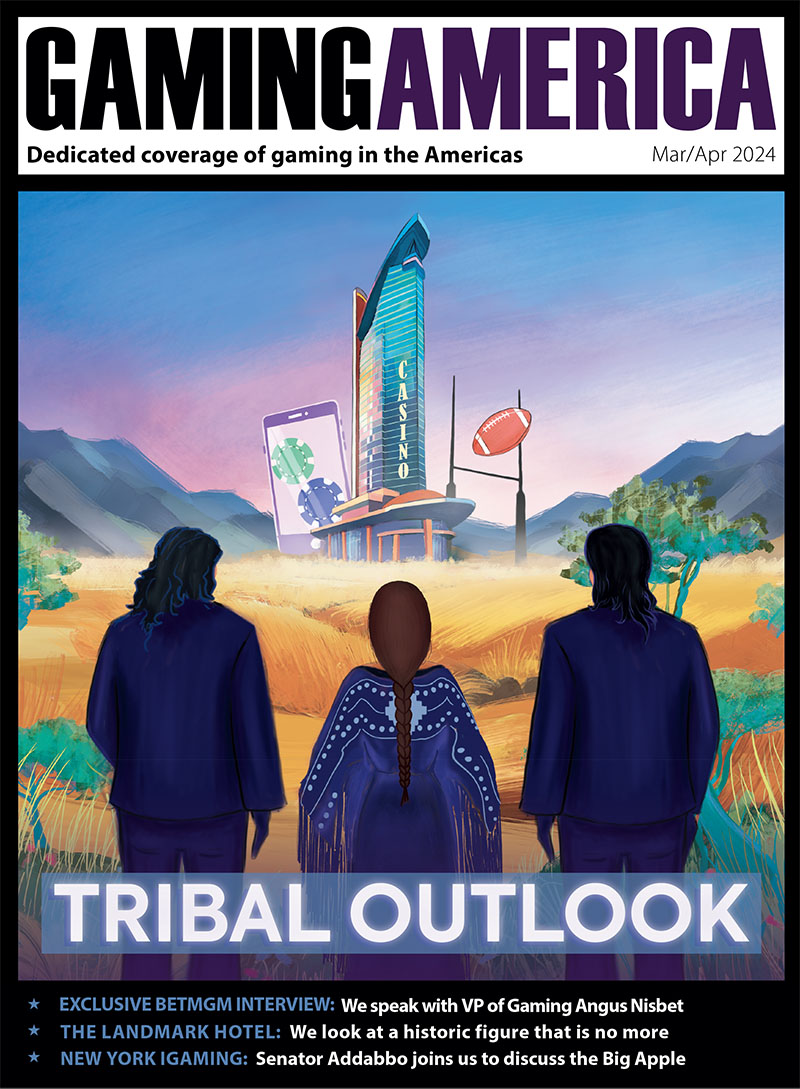
Noah Bernstein and Jacob Fortinsky have a lot in common. Both are Co-Founders and CEOs of innovative, new sports betting enterprises – Berstein of Locker, an app that allows users to bet, in real-time, on what will happen during the next series of a National Football League (NFL) game. Also, Fortinsky of Novig, a commission-free sports-betting exchange that allows bettors to wager against the market or their peers. Both are casual, good-natured, highly intelligent (and highly educated) guys who can throw around techno-business phrases like “treated it like an incubator” and “programmatic trading” with ease and panache. But when I recently interviewed both on camera for Gaming America and Gambling Insider’s online interview series The Huddle, their youth perhaps stood out more than anything.
Both Bernstein and Fortinsky are recent college graduates (from the University of California-Berkeley and Harvard University, respectively) working on what effectively are their first professional ventures as post-undergrad adults. “I’m fairly young, so I don’t have the most extensive professional experience,” Fortinsky told me when I asked how his professional journey led him to found Novig. Likewise, Bernstein said Locker is his “first one after college” – his first enterprise after graduation. These are not your stereotypical sports-gaming proprietors (at least in the US). Indeed, Bernstein and Fortinsky represent a new breed of sports betting entrepreneur, tech bros steeped in Silicon Valley and venture capital culture. They just happen to be applying their knowledge of UI/UXs, algorithms and seed funding to something they gravitated to as young men: sports and gambling. “I was in a frat in college and so NFL Sundays were like a religious holiday for us,” Bernstein told me.
“All the guys getting together, watching the games. My favorite part of watching those NFL games was when my buddy, who’s a Rams fan, would watch Cooper Kupp drop a pass, and me and my friends being able to give him stick for it. I wanted to focus on digitizing that experience of watching an NFL game with your friends.” Said Fortinsky: “My senior year of college, I decided to start Novig. On the side, I was very serious playing poker, I’m trading on prediction markets, and I got into sports betting, saw some serious problems with the industry and set out to build what I viewed to be a better solution. I aimed to build a better model and started the company with a close friend of mine.” You can get a hint of the confidence both men possess by Fortinsky’s last comment about setting out to build a better solution.
Neither was shy at all about expressing their ambitions to create market-leading apps that break the mold and set new standards – despite, of course, their relative youth and lack of experience. “The people I have the most respect for are people that are willing to take big risks to try to change the status quo," Fortinsky said. In that way, the “tech bro” moniker really fits. These guys are confident, tech-savvy and deeply enthusiastic about the most quintessential of 'guy' stuff: sports. (I didn’t see anything to suggest that the negative connotation of “tech bro” – a lack of good social skills – applied to either Bernstein or Fortinsky. Rather, they seemed like friendly dudes who’d be fun to drink a beer with and watch a game.)
More like Russ Hanneman than Richard Hendricks off the TV show Silicon Valley... But, speaking of, it’s fair wonder if this Silicon Valley-esqe approach, with its emphasis on innovation, technology, youth and verve, will work in the long term in the ever-growing (and rapidly growing) world of sports betting; especially with the deep-pocketed, well-known and/or firmly established players in the sector, like DraftKings, FanDuel, BetMGM, ESPN Bet and Fanatics. Fortinsky, for example, said, “We have taken a somewhat outsider approach. We chose to raise money from more typical Silicon Valley investors rather than from people within the industry, for a number of reasons. We have deep respect for lots of people in the sector, in various corners of the industry.
But I do strongly believe that the industry has to evolve in a number of key ways and the best way to do that was to raise from people whose visions of the industry were aligned with our own and were more comfortable taking a contrarian perspective.” That’s a bold statement to make when a 50-year-old company like Penn Entertainment has agreed to spend $1.5 billion to acquire the naming rights of another established, decades-old brand in ESPN, the self-proclaimed “Worldwide Leader in Sports.” It's then spent another $25m just to acquire a New York license. As everyone in gaming knows, the sports betting industry is packed with experienced, veteran businesspeople with (and this is a specific, technical term) gobs of money at their disposal.
For a couple of fresh-faced fellas fresh outta college to expect they can take on a monied establishment like that, is, well, audacious. Then again, there was a time not so long ago that taxi-cab companies and taxi unions were among the most powerful political players in America’s largest cities. Now, with the advent of Uber and Lyft, their influence has waned. Considerably. Those rideshare companies, now ubiquitous in every major and minor city in the US, were started by guys in their late 20s and early 30s less than two decades ago.
Who’s to say sports betting can’t experience similar disruptive innovation? A better question might be: would you bet against it? “I think a lot of companies in this space are focused on taking that analog process of placing a bet at a casino and digitizing that,” said Bernstein, “And I think the major players in the industry, both daily fantasy sports and sports gambling, have done a phenomenal job of growing that online market and bringing it to where it is. “For us, we’re really focused on the engagement of watching a game more so than the experience of placing a bet. For us, being a second-screen, social platform that’s driving viewership of the games from the younger demographic, I think that’s the real differentiating factor: we’re targeting engagement of the games and trying to make a better experience when enjoying the football games that we all love.
We see an opportunity to really build on the momentum that the major players in the industry have already set up; and create something that’s truly innovative and something that we really believe has a mass-market appeal. “I think one of the major issues in the industry that we saw in a lot of these products was a really steep barrier to entry. A lot of them have a ton of options, a ton of features to use. And I think sometimes it’s overwhelming for the casual fan, casual consumer, to hop on one of these platforms.
You feel like you’re kind of looking at the stock market. For us, we wanted to make a really curated, tailored experience, really easy calls to action, again just really homing in on the engagement of the audience for watching these games.” Of course, nobody knows what the future holds. But that sure sounds like the speech of a disruptive innovator, doesn’t it?

